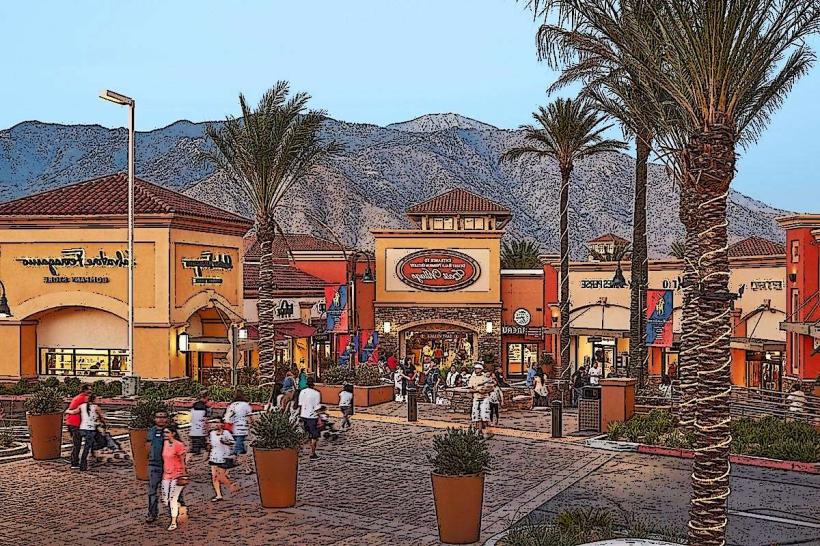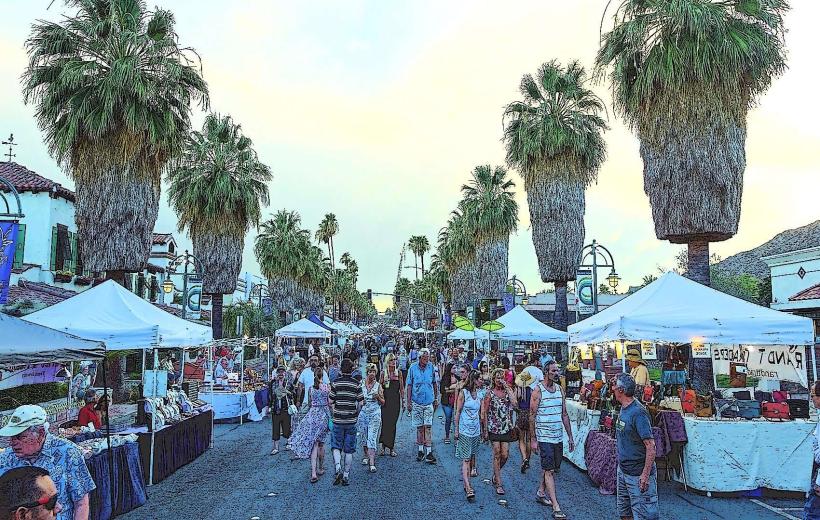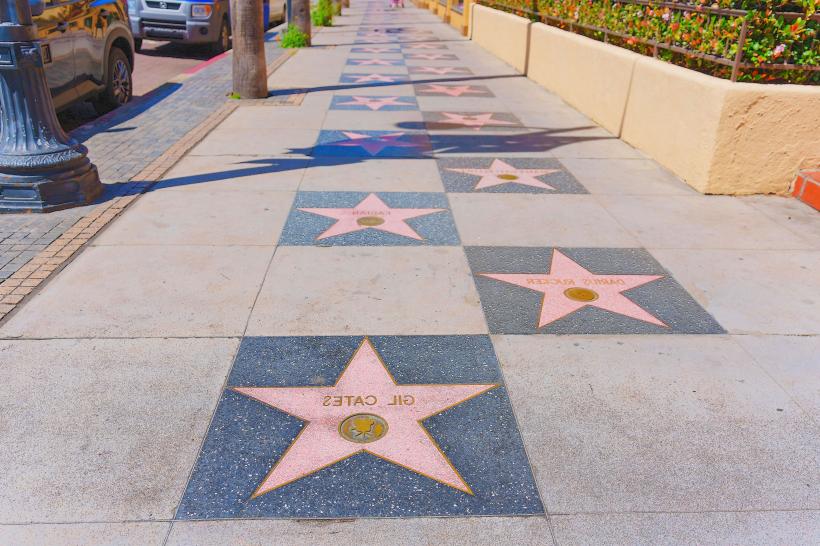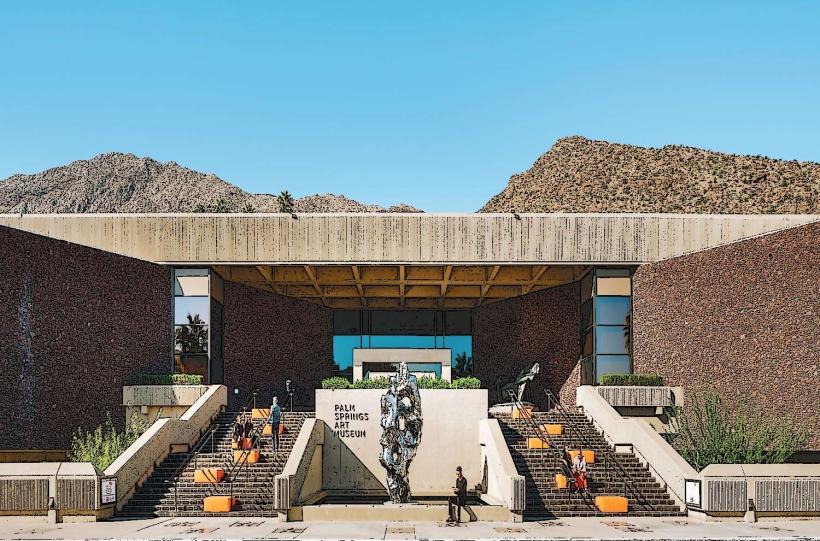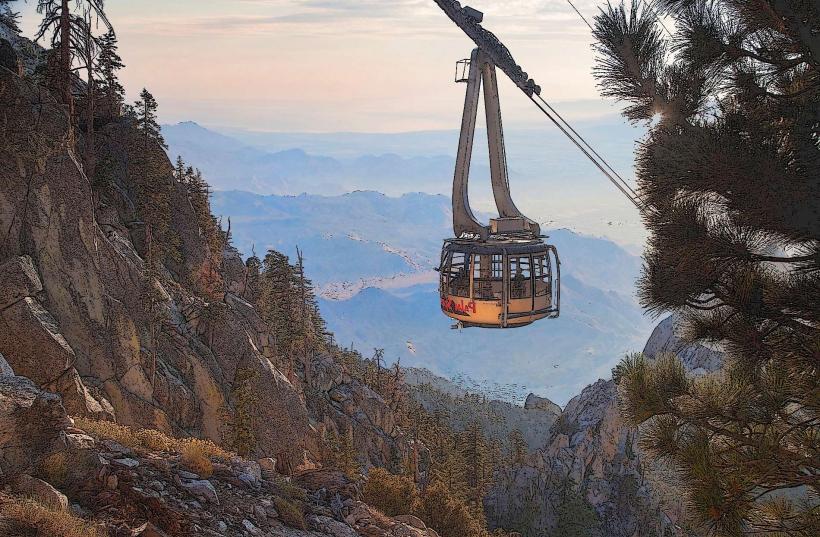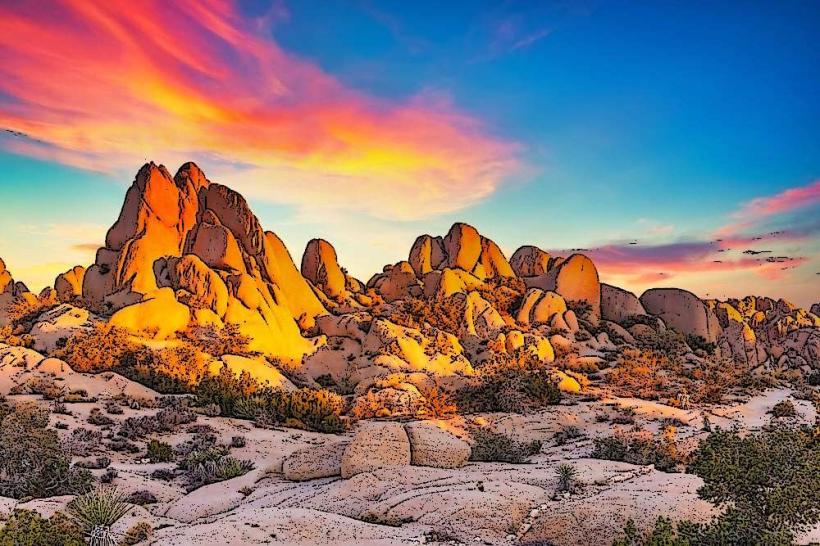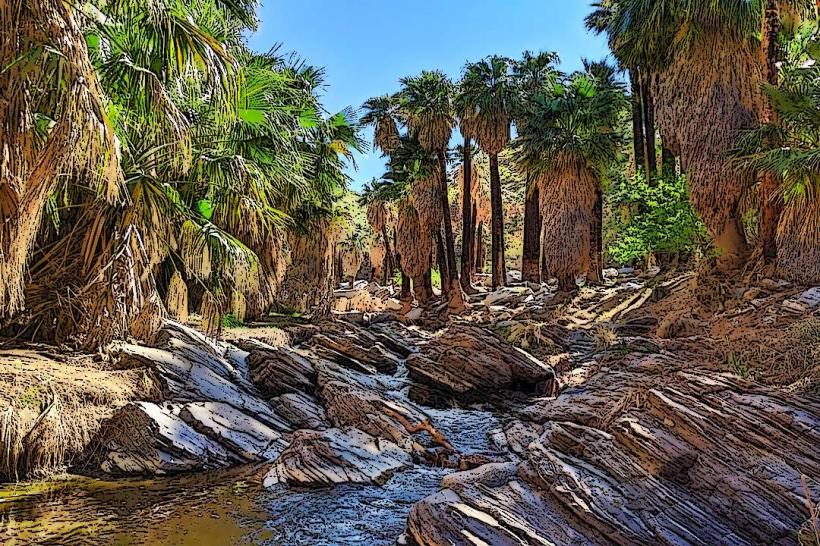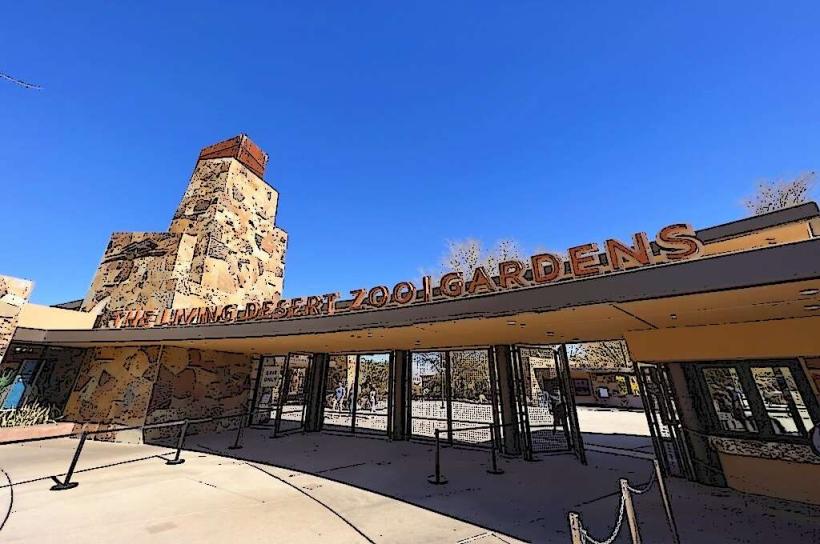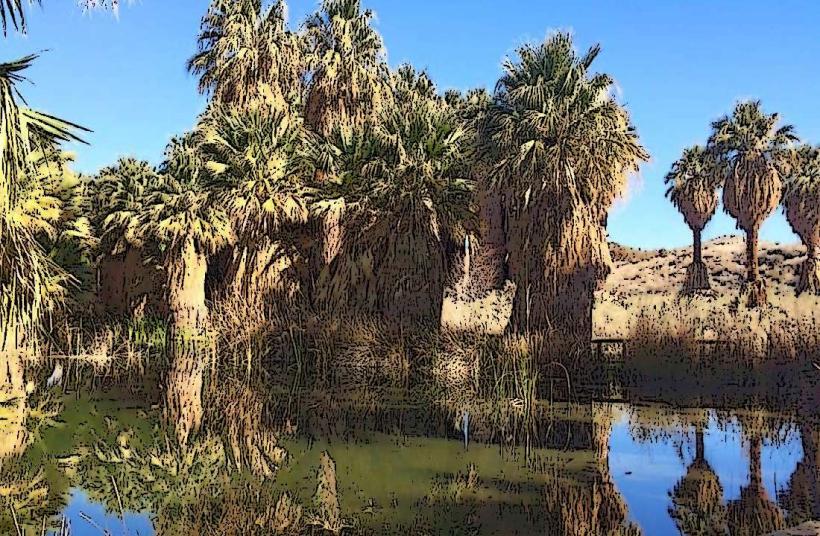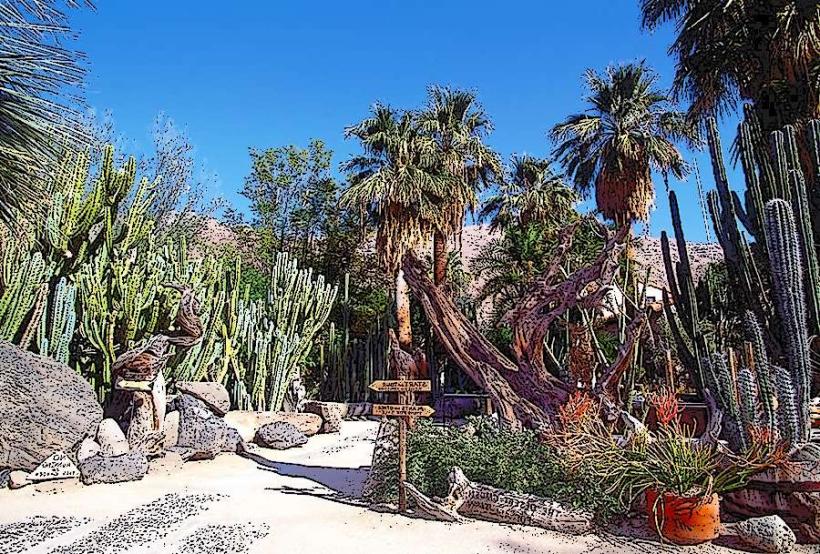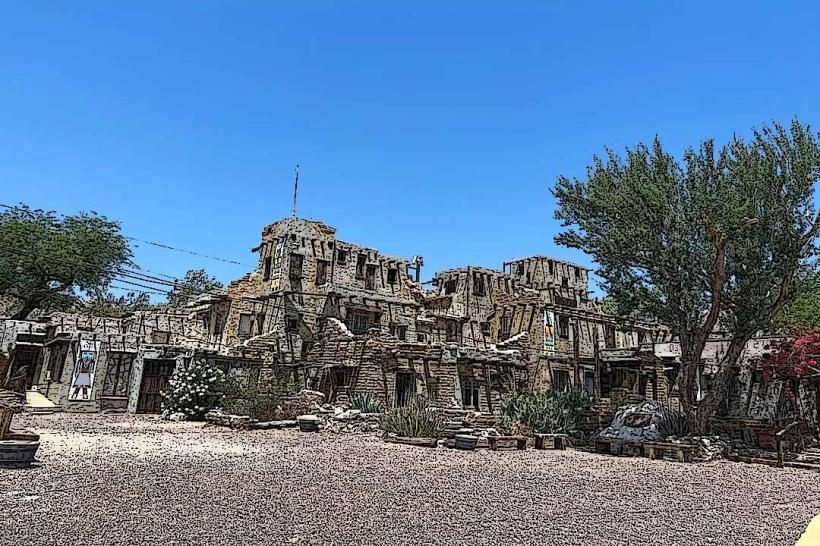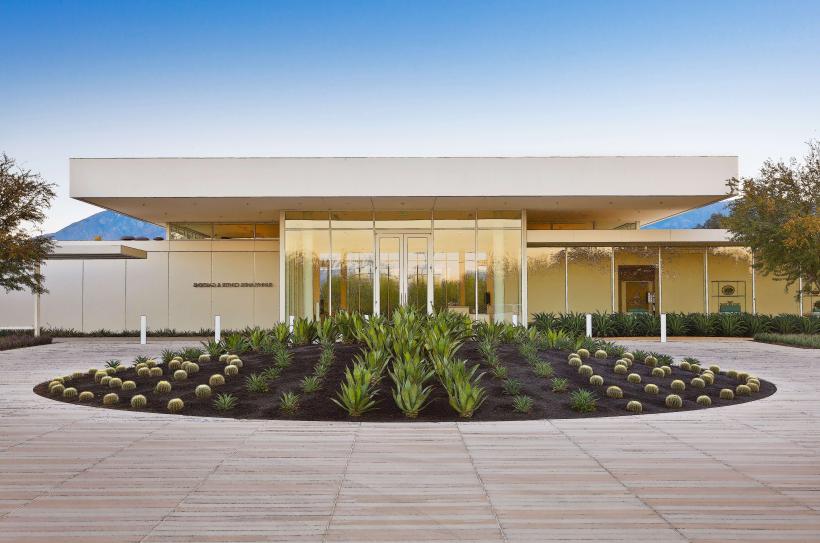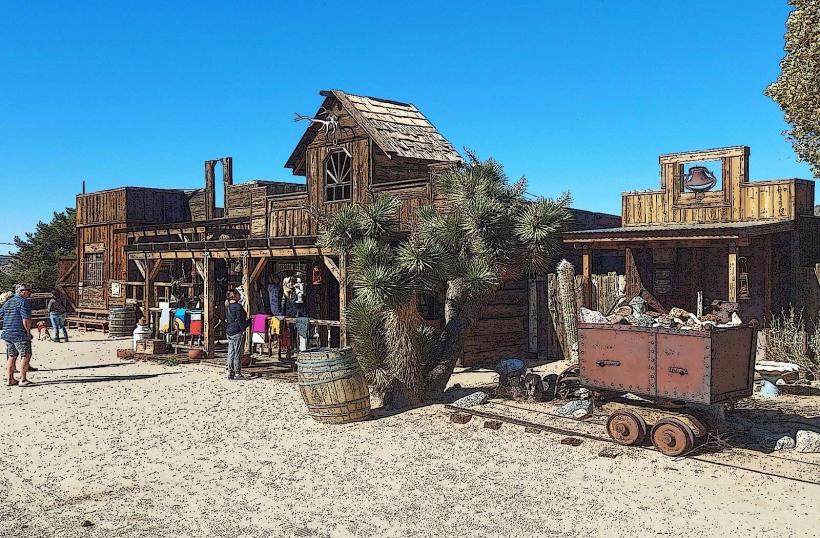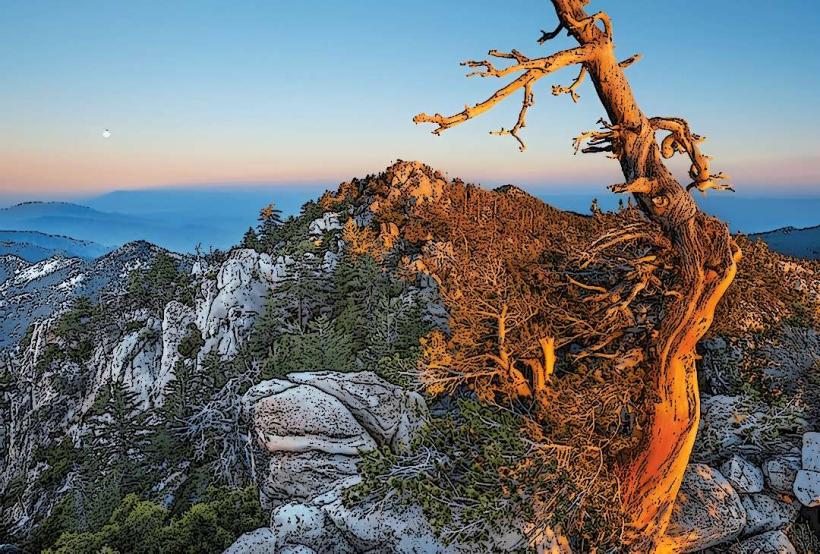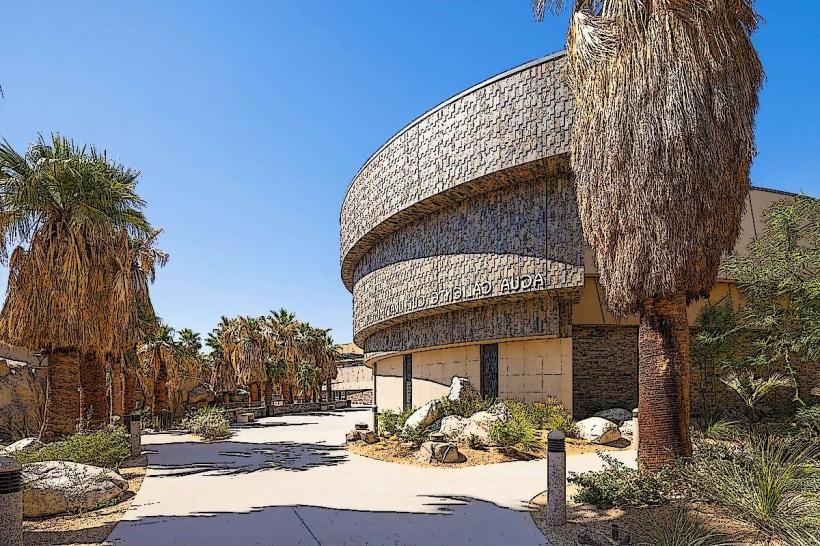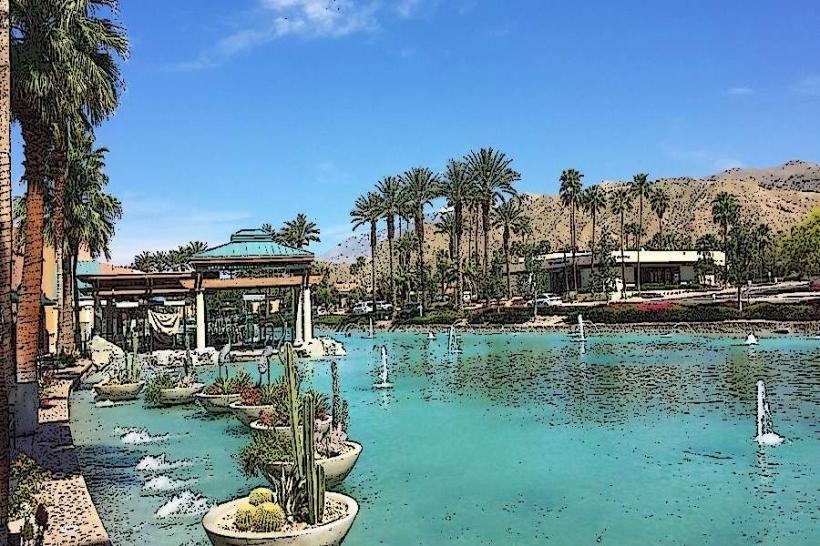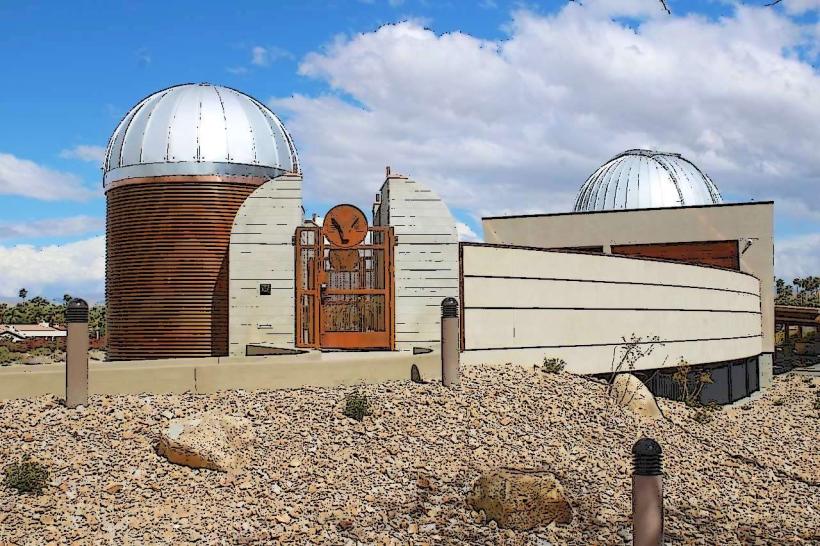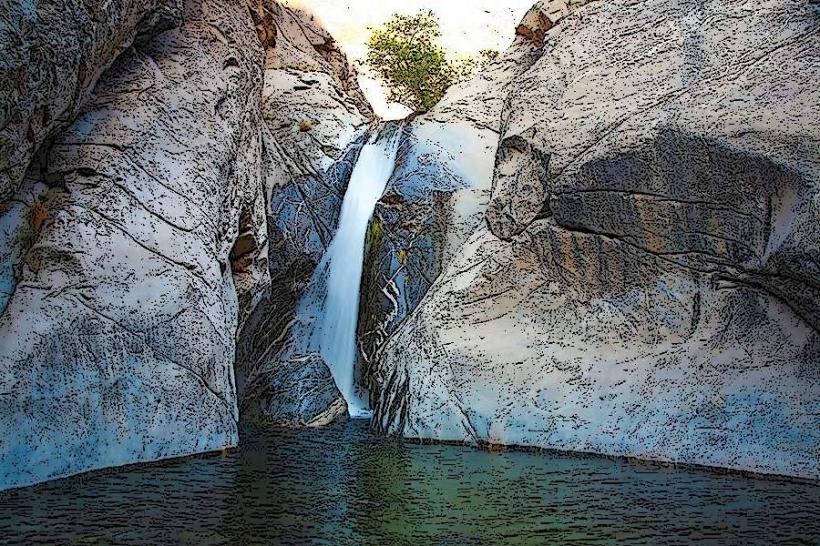Information
Landmark: Desert XCity: Palm Springs
Country: USA California
Continent: North America
Desert X, Palm Springs, USA California, North America
Desert X is an internationally acclaimed, site-specific contemporary art exhibition that takes place every two years (biennially) in the Coachella Valley, California. It began in 2017 and has since become one of the most significant and talked-about art events in the American West. Desert X brings together artists from around the globe to create works that interact with the landscape, often addressing themes like environmental sustainability, indigenous rights, migration, socio-political structures, and the human relationship with nature.
Here is a detailed exploration of Desert X—its history, curatorial philosophy, key editions, major installations, controversies, and global expansion.
Origins and Purpose
Founded: 2015
First edition: 2017
Founders: Susan Davis (board president), Neville Wakefield (artistic director and curator)
Desert X was conceived as a cultural initiative that would use the vast desert terrain of the Coachella Valley—including Palm Springs, Desert Hot Springs, Cathedral City, and surrounding areas—as a platform for immersive, outdoor art experiences. The goal was to:
Make contemporary art accessible to a broad public.
Address social, political, and ecological issues.
Reimagine how art interacts with geography and public space.
Drive cultural tourism to the region in a sustainable and thoughtful way.
Desert X Editions in Detail
Desert X 2017 (Inaugural Edition)
Curated by: Neville Wakefield
Installations: 16 major site-specific works
Key Works:
Doug Aitken’s "Mirage": A full-size suburban house made entirely of mirrors, reflecting the desert sky, mountains, and terrain. It became the icon of Desert X and received global attention.
Jennifer Bolande’s "Visible Distance/Second Sight": Billboards along the road that seamlessly matched the mountainous horizon behind them.
Sherin Guirguis’ "One I Call": A traditional adobe structure referencing Egyptian heritage, placed in the Whitewater Preserve.
Themes: Reflection, dislocation, environmental awareness, architecture, and illusion.
Impact:
Brought 200,000 visitors to the area.
Generated $1.25 million in economic impact.
Acclaimed for its innovative use of the landscape.
Desert X 2019
Curated by: Neville Wakefield and Matthew Schum
Installations: 19 artists from around the world
Key Works:
Iván Argote’s "A Point of View": A series of viewing platforms with phrases like “You are water” and “We are in this together,” placed near the U.S.–Mexico border.
John Gerrard’s "Western Flag": A virtual flag made of black smoke symbolizing oil dependence, placed in Palm Springs.
Sterling Ruby’s "Specter": A bright orange monolith that stood in stark contrast to the sand and sky, evoking mystery and modernist minimalism.
Themes: Immigration, global warming, surveillance, colonial history, modernism.
Controversy:
The event faced criticism after accepting funding from the Saudi royal family for its 2020 Desert X AlUla edition (see below), leading to the resignation of board member Ed Ruscha.
Desert X 2021
Curated by: Neville Wakefield and César García-Alvarez
Held during the pandemic, with precautions and digital content
Key Works:
Nicholas Galanin’s "Never Forget": Giant Hollywood-style letters spelling “INDIAN LAND” on ancestral Cahuilla land.
Serge Attukwei Clottey’s "The Wishing Well": A wall made of recycled plastic water containers, referencing water scarcity and colonial resource extraction.
Zahrah Alghamdi’s "What Lies Behind the Walls": A towering structure of soil and cloth, recalling traditional Middle Eastern architecture.
Themes: Indigenous land rights, water, colonial legacies, climate crisis, pandemic reflections.
Impact:
Stronger focus on local indigenous history and ecological preservation.
Exhibitions were entirely outdoors with social distancing considerations.
Desert X 2023
Curated by: Neville Wakefield and Diana Campbell
Installations: Featured 11 major works
Key Works:
Torkwase Dyson’s "Liquid A Place": Geometric black sculptures evoking water systems and historical memory.
Himani Bhatt’s untitled work: Addressed diasporic identity and material culture through architectural remnants.
Gerald Clarke’s "Immersion": An interactive piece simulating the experience of Native American cultural erasure.
Themes: Decolonization, environmental degradation, migration, memory, identity.
Desert X 2025
Curated by: Neville Wakefield and Kaitlin Garcia-Maestas
Highlights:
Agnes Denes’ "Living Pyramid"
Ronald Rael’s adobe and 3D-printed structures
Alison Saar’s Soul Service Station
Sanford Biggers’ mirrored cloud sculptures
Themes: Sustainability, cultural healing, reflection, and material experimentation.
Desert X AlUla (International Expansion)
In 2020, Desert X partnered with the Royal Commission for AlUla (Saudi Arabia) to launch a sister exhibition in the AlUla desert—a UNESCO World Heritage site.
Editions:
2020: The first edition included Saudi and international artists. Criticized for partnering with the Saudi regime due to its human rights record.
2022: Second edition expanded in size, with deeper curatorial focus on Bedouin culture, ancient trade routes, and desert mysticism.
Controversy:
Some artists and art critics saw the Saudi expansion as cultural whitewashing.
Despite this, the exhibition was praised for enabling emerging Middle Eastern artists to gain international visibility.
Desert X Legacy and Cultural Role
Innovative Model: Desert X blends art, public space, and environmental consciousness in a way few exhibitions do.
Free and Open Access: By removing gallery walls, it brings art to people who might never step into a museum.
Tourism and Economy: Attracts hundreds of thousands of visitors and boosts local economies.
Environmental Concerns: Raises awareness about fragile ecosystems and sustainability, though installations must comply with strict land-use protocols.
Art and Activism: From indigenous rights to oil politics, the exhibition makes bold sociopolitical statements through immersive visual experiences.
Desert X is not just an art show—it’s a cultural movement that redefines how art can be experienced in vast, open, and often contested landscapes. Each edition evolves in conversation with local communities, global politics, and the artists’ own philosophical inquiries.

